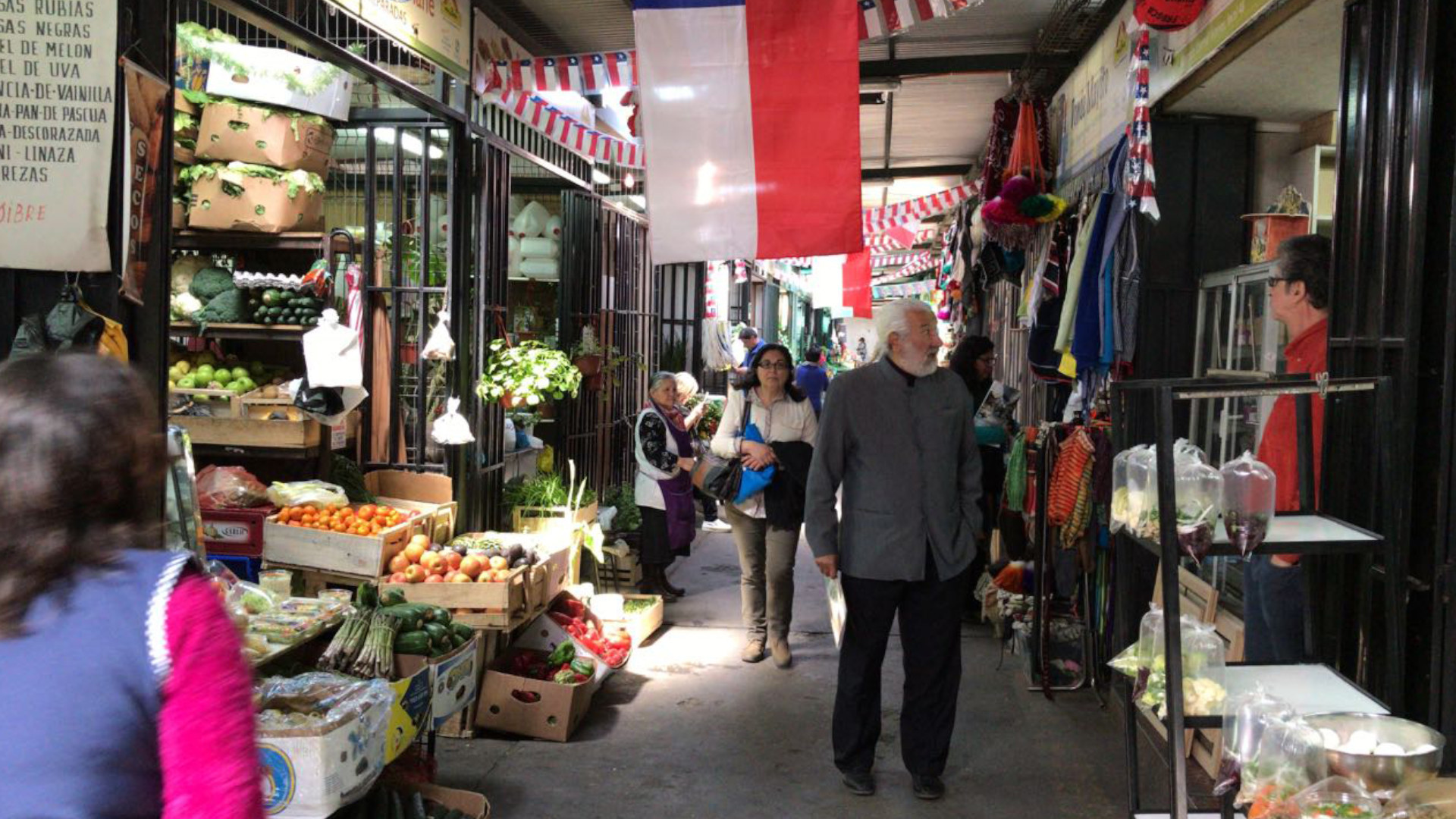Conscious Local Economy
The selection of this theme seems to me of vital importance, for those who live in this basin and for the entire country.
I would like with a distinction that is not semantic, to eliminate possible misinterpretations. The “small” does not mean that it is something “poor.” The “local” does not mean that it is “isolated”.
When I speak of local economy or local development, I am not just talking about the rural. This discussion and propositions can be useful in local development within urban and rural areas. It applies to both.
HISTORICAL INTRODUCTION
There is a literally “vital” connection between the crisis that we are experiencing in our country, and on the planet, and the conscious development of local economies.
This is not a new topic. But it has become extremely contingent in response to the crises we are experiencing today. Already in the 1960s we participated in debates on this topic of Lo Local. From a local economy.
I remember very well Gus Schummacher’s book: “Small is Beautiful”. Also, I remember Mohammed Yunus’s doctoral thesis, on the creation and implementation of credit lines at the community level, with special emphasis on gender issues. An issue, in itself, very important.
The interest for the local, produced a great literature on what was called: “Integrated Rural Development.”
I must give context to this, very briefly. The devastation caused by the Second World War, led to the creation of the UN, the so-called Bretton Woods Institutions, and the Marshall Plan, with the idea of rebuilding Europe. That was the initial motivation. I did some studies of the first World Bank projects in Japan, Spain, France, Yugoslavia … One example was the financing of the railways in France. But, Europe rebuilt itself and very quickly.
And, it was there that the decision was made to mobilize these capitals to developing countries. The central objective was defined around the elimination of poverty. It should be noted that not everything had an altruistic character. For many of the rich countries, migration from poor countries to developed countries had to be stopped. I remember as if it were today, when one of my bosses, who justified the transfer of funds to poor countries, argued: “either you keep them in their country of origin, through greater and better development, or you will have them in New York ”.
The criteria for the allocation of funds were defined in relation to the relative population between urban and rural. At that time, the great majority of the population lived in rural areas and, consequently, the great part of development financing funds went to those areas. But, for this you had to have a strategy. It is titled Integrated Rural Development. There, the alleviation of poverty in rural areas was recognized as fundamental. In the case of urban areas, the strategy, to say “local”, was the development of neighborhoods, and the provision of public services (water and sanitation), and an emphasis on health and education issues.
Forgive the redundancy, I joined this international debate in 1975, and perhaps a little earlier, when I was in economics school in the mid-1960s (agricultural economics). It was at that time that I had to write several documents on economic policy on these matters, within the World Bank. Fisheries, forestry, biodiversity, water and irrigation policies, non-conventional renewable energies (corn alcohol, use of agricultural residues, Zero tillage), desertification, hydrographic basin management … In the urban area, locally, I focus mainly on in populations that depended on garbage collection and recycling. Solid waste, mainly. Unforgettable experiences that led me to travel around the world, as well as learning to write global policy documents. Something not minor. A tremendous learning experience.
All these policies were written with this idea of developing the local. As an example, and to illustrate what I am saying, in the specific case of fisheries policy, it was stipulated that industrial fishing would not be favored. Three dimensions of fishing were favored:
- Artisanal fishing (local).
- Fish farming at that time was freshwater fish farming (local).
- Conservation and management of marine resources (locally).
Some of the objectives to go in the direction of the local were:
- Elimination of poverty in rural areas
- Redistribution of income in favor of the most vulnerable
- A policy of food self-sufficiency
- Maximize well-being based on existing natural resources in the hands of the poor (land, water, coastal edges …)
All this accumulation of experiences and proposals began to disappear in 1979-80 with the Washington Consensus. The great move of the Chicago Boys to free and global trade, with the idea that economic growth depended on international trade. The local disappears, as does the interest in equity and economic, human and social equality. That was the key moment when interest in the local disappeared. For those of us who lost that battle, we try to include this debate by saying that we must opt not for globalization but for GLOCALIZATION. Another way to find a powerful catchphrase, we said:
“Think Global, But Act Local”
Today we return to the local, but perhaps under different postulates and in very different situations, both macro and micro. If what I say is true, then we must not reproduce the past, unless it is strictly necessary. Of course, we cannot forget the lessons of the past.
I spent 9 years studying these experiences at the World Bank (OED). I had the opportunity to evaluate many of the completed projects from the first decades of Integrated Rural Development. I saw the good, the bad and the ugly. And it was based on those experiences that I wrote my proposal on a new concept of sustainable development. A topic that we can discuss on another occasion.
THE SITUATION TODAY
It is clear that the situation today is very different from that of the past.
For example, the planet’s population has doubled and we are in the midst of a technological revolution in communications.
Other Variables to Consider:
When we talk about rethinking a local development strategy, we must take into account another series of important variables:
Today,
- The urban population of the planet surpassed the rural population (big issue).
- The urbanization process is tremendously accelerated.
- We are all being affected by climate change.
- Local development will be determined by water scarcity.
- There has been a significant increase in the costs of basic services.
- THE GREAT DETERIORATION IN URBAN FORMS OF LIFE.
- The deterioration in the quality of food.
No less important is the issue of equity, in all its senses, where people migrate to new local economies motivated by a low-income issue.
There is no doubt that the issue of the relationship between local development – rural and urban – and health deserves special treatment.
At the people level, there are other considerations that motivate them to develop local communities with local economies:
- Define a new ideology of life, against consumerism, in favor of barter, etc. An anti-system behavior.
- An ethical motivation not to explicitly or implicitly support a system that those people see as corrupt and unjust, including the destruction of our natural resources and the environment.
- Define himself as a guardian of nature, ancestral knowledge, local cultures and many other aspects such as music, stories, ways of eating, dance …
- Simply living in community. Not living alone or alone.
THE WHY OF THE LOCAL ECONOMY
I would like to develop a little about the reasons that justify stimulating a rural economy. Here are some important considerations:
- Inequities are growing rapidly and, in some way or another, it is also affecting you in particular.
- Spatial inequities that are multiplied by distances. Minimize the negative impacts of not really having adequate land use planning. A measure of conservation and rational management of our resources.
- The concentration on the processes and institutions in decision-making (Santiago) that affect the communities in question. The problems of centralization are immense. But we must take into account the failed experiences of decentralization and the existence of economies of scale in congestion. Although it seems strange. I had to live this in Colombia and in Brazil. The study of cities.
- Excessive pyramidal structures: Top Down. There is a personal and collective exhaustion to continue responding to decision structures in which we do not have the possibility to participate in a binding way. Importance of citizen empowerment within citizenship.
- The importance of living in a RURAL space. This is a great song, which I spoke about at an international tourism conference at the University of San Sebastián. The rural as a paradigm. The rural as the last bastion of our cultural heritage. Europe spends trillions of dollars promoting the Rural. The Rural as a palliative to mismanagement of the state.
- Increase and preservation of local identity. The accelerated process of urbanization has killed our personal and local identity. We have been invaded by an individualistic economic system and high levels of consumerism. In the cities we are one more person. Human relationships are destroyed in favor of competitiveness and the famous phrase I have no time.
- It is an energy boost to local governments and governance. This ideology must be translated into the institutional sphere. Local institutions must emerge or those that exist must be strengthened. We have seen the importance of municipalities today. But we must also consider community organizations.
- Create new spaces to express yourself. The local creates many spaces for expression, which many people are looking for, this is one of the aspects that people tell me the most: I am involved, I participate, I feel part of. A new sense of identity and belonging. It is a great source of well-being, that people from the business, the restaurant, the neighborhood know you …
- Create and develop special abilities. Living locally demands new attributes and capabilities. Many of them have to do with the importance of our self-sufficiency, survival, the lack of …
- Ensures the property locally feel its purpose. Community issues such as water, native forests, animals, medicinal herbs.
- Development of a territorial approach. The territory as a unit of account, as the base of productive assets, and as the management and conservation unit. Centralism does not have the ability to distinguish the local. There are many Chilies. It is not uniform, even though laws and policies tend to perpetrate this non-existent uniformity.
- Special for a post crisis strategy. Of this I have spoken several times. Local development is extremely important to maintain and improve our health, in a system that is designed to manage disease and not health. Health that is born from environmental protection, food, physical activities, contact with the immune system of nature, etc. The Natural Damping Development (NDD).
PRINCIPLES
This proposal is not arbitrary and meets many important criteria. I start with some Major Criteria:
- The local as such can be conceived as an elementary, basic criteria.
- Local development as a way to achieve development sustainability at all levels. Like the tree root of sustainability.
- Finding the vital and necessary balance between strong economies and strong communities.
Other Criteria that accompany the above:
- Establish the foundations of closed, protected economies, as opposed to or complementing open economies, today extraordinarily fragile,
- Change in the composition and nature of economic growth and employment across the local. Many think that local strategies do not contribute much to GDP. Nothing further from reality. The local is a fundamental source of sustained growth in space and time.
- Creation at the local level of material, spiritual, institutional and social wealth.
- Small business creation. This is not a slogan. It is quite difficult to do it. Many times the incentives are not there. Other times the technology is not compatible or conducive to small businesses. The case of Ninhue and my EU project.
- Creation of community collections: water, land, forests. Natural capital. This is important in a society where everything has been privatized. It is important to open society to other forms of right, appropriation, use and management of our natural resources.
- Make compatible material and non-material objectives of communities, through the great role played by culture, traditions, customs, habits … this is unique and we must preserve it at any cost.
- Special forms of local entrepreneurship, many of them to be developed. Most are subsistence ventures, and financial mechanisms and economic incentives do not go in this direction.
- Establishment of connectivity mechanisms with high social impact. Connectivity as a great source of economic and social growth.
OTHER TOPICS
I would like to round off all of the above, mentioning a group of complementary topics:
- Identification of leaders.
- Organization of direct participation mechanisms: strengthening our democracy.
- Strengthens existing authorities and leaderships at the local level. Municipalities.
- Use of modern communications and other cutting-edge technologies.
- Green growth, green jobs.
SOME PROPOSALS TO DEVELOP
Eco-localism. Promote the economy from within. From the heart of a community. Local ecology as one of the great challenges. That is why we must not degrade our natural resources. Sustainability meets localism.
La Locanomia O Comunomics: local community and local communities. An important intersection. A tremendously inclusive development. Community prosperity goes beyond growth and jobs. A big change in the composition of economic growth.
Develop direct policies to develop the local economy such as:
- business and corporate development of SMEs.
- establish strategies that are citizen-centered.
- establish viability of bottom-up economic, political and social management.
Incorporate the local economy explicitly in development plans and policies and in the New Constitution.
Define the community sector as a sector in our national accounts. Grow community power.
Develop financial mechanisms and instruments to support local economies.
Create local social value as a constitutional value (part of the preamble). This is the alternative to what governments should do. Case of the EU and France and Portugal. They spend millions of euros to maintain local economies, in case you’re wondering where that is done.
IMMEDIATE ACTIONS TO CONSIDER
1.- Create citizen power in local governments including municipalities.
2.- Emphasize local companies and corporations
3.- Define roles and responsibilities of local and community areas
4.- Advance in the social, cultural, ethnic, rights, equity … it is easier from the local
5.- Create local alliances
6.- Define local ‘opportunities’: food, tourism, rainfed agriculture, natural resources protection …
7.- Definition of local property and human rights, property rights.
8.- Transform communities in remote areas into formal forms of government and governance.
9.- Promote the relationships that exist between local development and sustainable development: conservation, ecological protection, the use of selective production and extraction, generation of local benefits.
10.- Maximize the benefits of local-based projects
11.- Expand and manage physical and other connectivity
12.- Promote intersection with municipalities
CONCLUSIONS
- We must clearly describe the “public good” nature of local development. Define what works and what doesn’t.
- We must establish how much we value the local point of view.
- This strategy is also a macro insurance for everyone, particularly in times of crisis like the one we are experiencing.
- Define transition periods to local economies. A revolution of local economies.
- Healing through local development.


